Marvel Snap is the new card game from Hearthstone's Ben Brode, so shouldn't its battles feel a little more super?
Gorgeous to look at and simple to play, Marvel Snap needs to add more crunch to its combat and dial down the monetization.
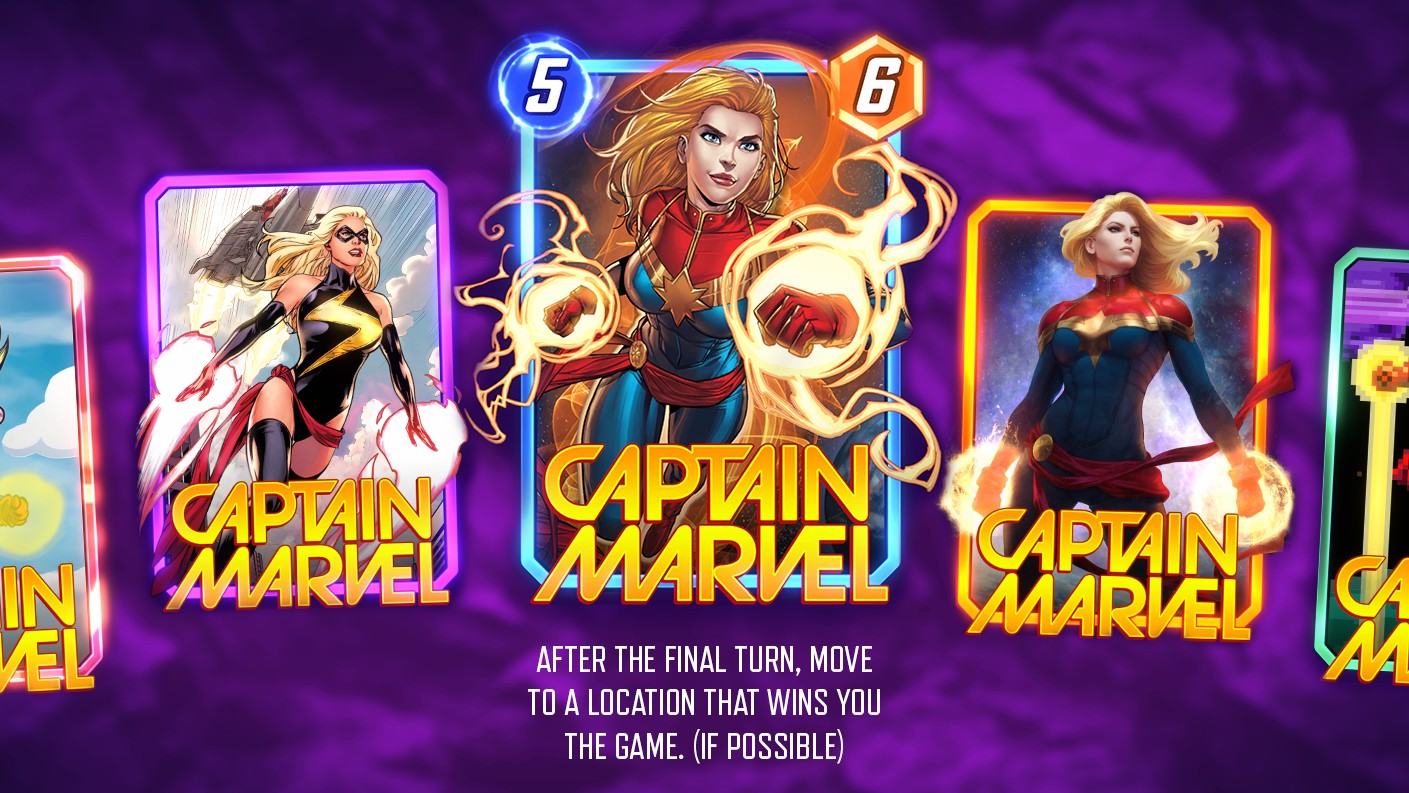
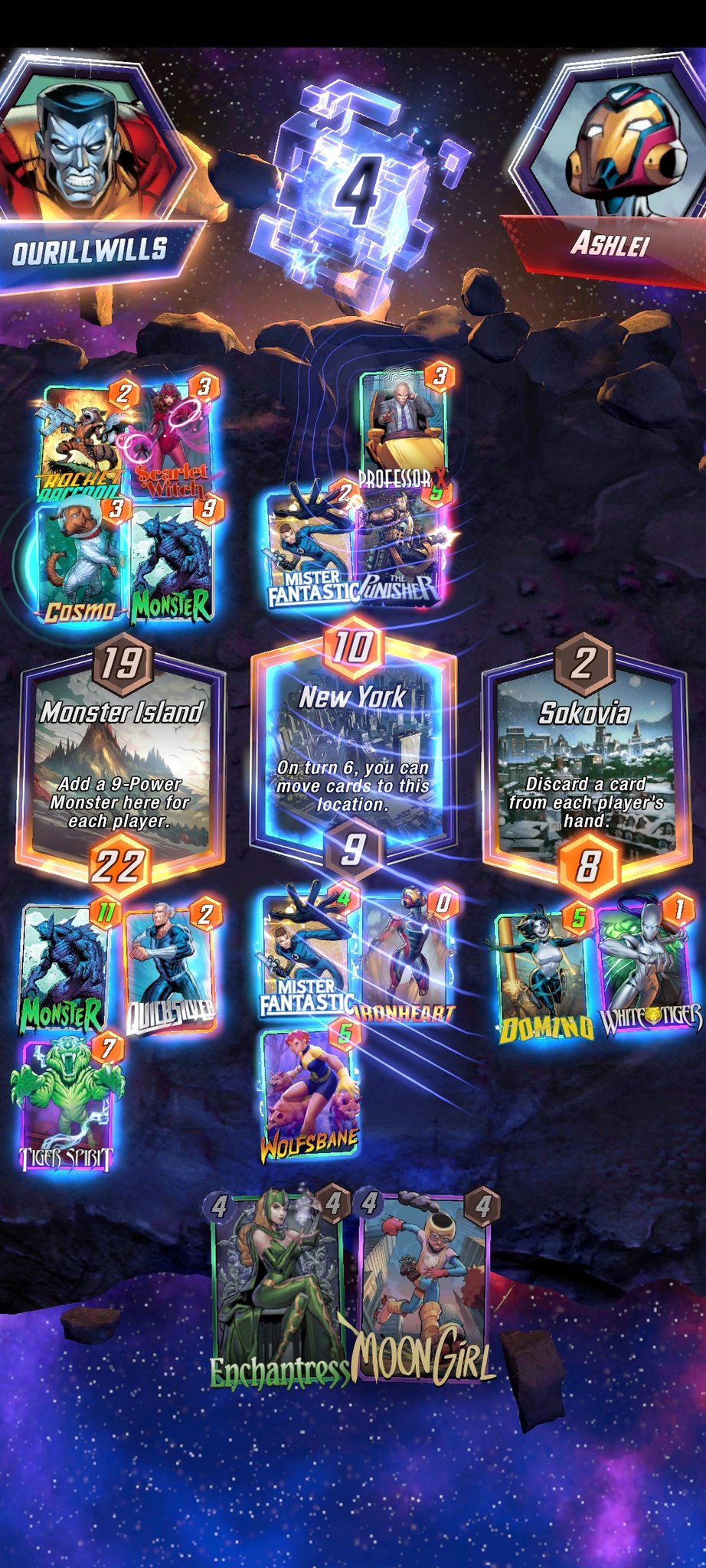
At the risk of triggering a blood feud with Richard Garfield, you could plausibly make the argument that Ben Brode is the most famous card game designer on the planet. Brode made his name as the director of Hearthstone, where he presided over the most successful period of Blizzard's money-printing CCG, while also blissfully embracing his meme status among fans. Who can forget Brode, for once not clad in his flannel shirt uniform, rapping about the latest expansion just to satisfy the Hearthstone subreddit?
When he left Blizzard in 2018, it felt like a hole was blasted through one of my favorite games.
But a few months later, Brode announced that his startup studio Second Dinner had been joined by several other Hearthstone alums and they were all hard at work on a new card game—this time partnered with the Marvel empire. Unsurprisingly, the nascent team uploaded plenty of Brode-centric videos, where he hyped up the project in a tone somewhere between a kid at Christmas and a particularly cheery ax murderer. Just like the good old days. Another Brode Era was on the way. All we had to do was wait.
That game is Marvel Snap, and it's playable now provided you can snag a key. In fact it's been in closed beta for about a month, and I've had access for a couple of weeks. (The beta is currently exclusive to android devices, but the full game will be available on iOS and PCs upon release.) If for some reason you've been worrying that Brode's design philosophy might have radically changed since his time at Blizzard, I'm here to reassure you that Marvel Snap does not involve thirty-minute matches and a dictionary of keywords. In fact, it's considerably simpler than Hearthstone.
A Marvel Snap deck contains only 12 cards, and the games last six turns. Both players make their tactical choices simultaneously, which means there is very little in the way of minion combat or hand disruption. Instead, your only goal is to have a higher power number than your opponent on at least two of the three locations on the battlefield. Sometimes all that requires is grabbing the biggest guy in your hand and placing them where they're needed most; no other mechanics necessary.
Marvel's best-in-breed comic artistry absolutely shimmers on these cards.
Marvel Snap is very much a mobile game. It is designed to be agile, with matches built on quick decisions and easy calculations. As someone who never downloaded Hearthstone to their phone, because the idea of piloting Control Warrior mirror matches on a screen the size of a sardine tin seemed unnecessarily oppressive, that's totally fine with me.
In Snap you'll usually be playing one card per turn, which makes strategizing fairly straightforward. Mr. Fantastic can boost the power level of his adjacent locations by two. Naturally I'm going to drop him in the middle slot. Jessica Jones gets more powerful the longer she's on the board, so she'll be assigned to a location where I'm nearly capped out. Yes, there are some opportunities for advanced tactics; Star-Lord, for instance, gains stats if he's played at the same location your opponent is targeting, which leads to some fun, Yu-Gi-Oh-ish dramatics. But for the most part, Marvel Snap does not want to overwhelm you with choice.
Keep up to date with the most important stories and the best deals, as picked by the PC Gamer team.
I'm not entirely sure how I feel about this. One of the things that keeps me coming back to Hearthstone is the feeling that anything—literally anything—can happen over the course of a match. At this point Blizzard has printed so many wacky cards that, if a game lasts into the latter turns, each player will be hanging on for dear life, unleashing ridiculously potent board clears and combos, often at the mercy of the RNG they claim to hate (but surely secretly love). Whereas, with Snap, all we're really doing is jacking up the integers until the person across the table can't catch us. It's fun, and full of interesting tactical wrinkles, but it also feels pretty subdued.
I mean, we're sending out a legion of colorful Marvel characters to the frontlines, and none of them ever come to blows. It ought to feel a bit more like a superhero game than it currently does.
Into the Nexus
Despite only being in beta, there have also been some substantial complaints about Marvel Snap's current progression and monetization model. A recent flash point came over the addition of what Second Dinner called "Nexus Events"—basically loot boxes which have an outrageously slim chance of securing an exclusive card inaccessible in the collection track. You can guess how well that went over.
If you're a player who wants to put together an optimal deck, you are likely out of luck or out of pocket.
Unlike Hearthstone, there are no card packs in Marvel Snap; instead, the only way to complete your collection is via progress on a "Collection Level" track, which is most effectively accomplished by upgrading the cards you already have. (This increases their cosmetics, not their actual stats.) Basically, after a handful of games and a handful of upgrades, a random card will be added to your library. You cannot disenchant those cards to construct other ones, nor can you tear through a ton of boosters until you possess whomever you're after. That means if you're a player who wants to put together an optimal meta deck, you are likely out of luck or substantially out of pocket.
The process can, of course, be sped up a bit by spending cash on in-game materials, giving you the resources to pay for upgrades you couldn't previously afford. But the cards are still distributed on a purely random basis. Free to play, or pay to win, it doesn't matter. Marvel Snap is asking for a lot of dedication.
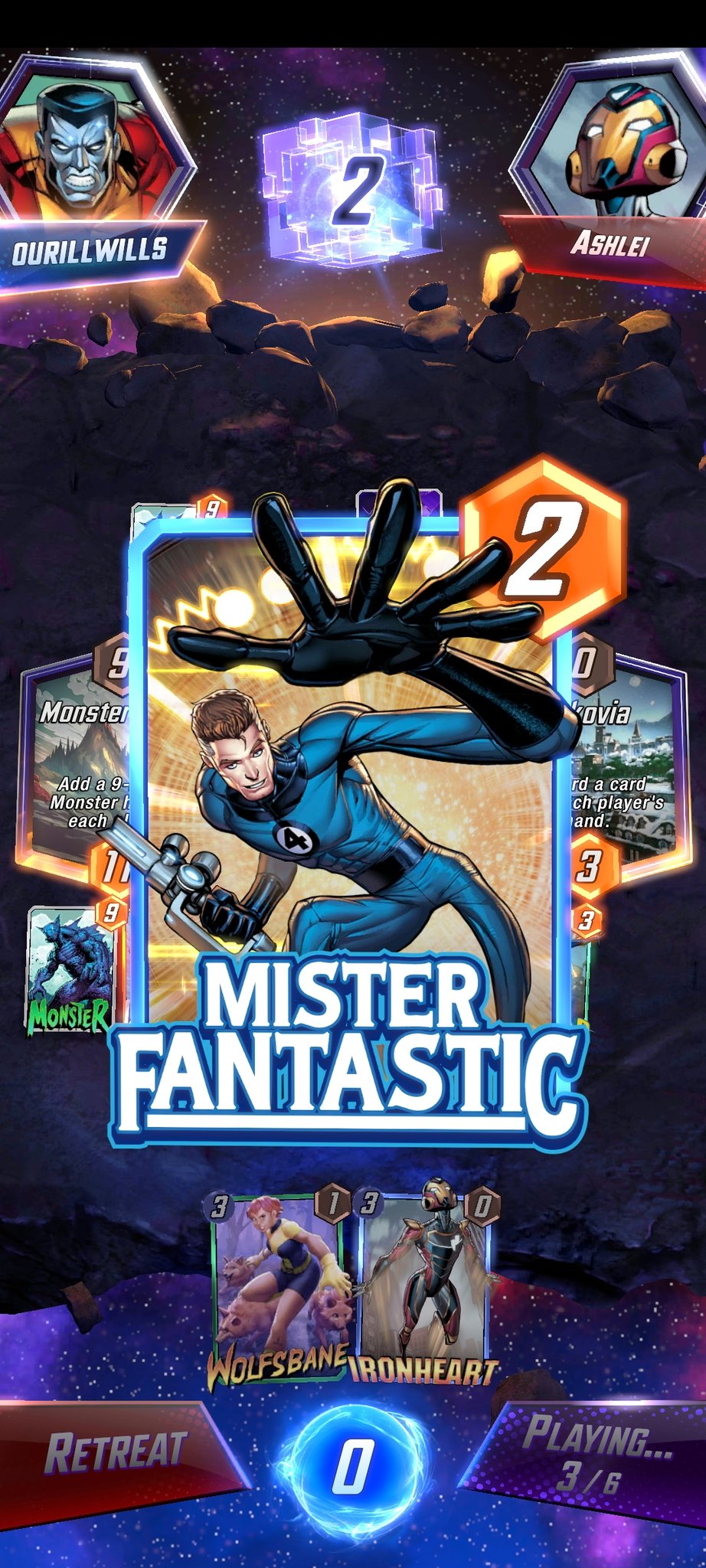
I didn't really find this policy to be all that onerous, but maybe that's because I'm still in the early brackets, and I'm not going up against the grandmasters at the top of the ladder. Honestly, I think it's kind of nice to not have a voice in the back of my head urging me to fill out the entire catalog. Instead, I can put together a deck with whatever I've been assigned, joyously ignorant of whatever the formative tier lists might say. But that also could have to do with the fact that Marvel Snap doesn't quite have its hooks in me the way that Hearthstone or Legends of Runeterra did.
Right now, this is a game I might play on a train, or a bus, or in a doctor's office—without any of the intensity required to, say, grind to Legend rank. But if you've become obsessed with Snap, I could see why the progression throttling and potential costs might be maddening.
Still, I'm excited to see what Brode and the Second Dinner team come up with as we barrel towards Marvel Snap's formal release date. The game looks incredible; Marvel's best-in-breed comic artistry absolutely shimmers on these cards, and only looks better when their rarity is upgraded. (Hulk smashes through the panel borders, The Punisher drops a grenade on the opponent's board after leaving my hand. All of this should look even prettier once it's on a luxurious monitor.) I just wish the actual games held my attention for a little bit longer, which might be a problem that orients back to those card collection limitations.
Would I be more addicted if Captain America were in my deck? I suppose I'll find out after another hundred games or so.
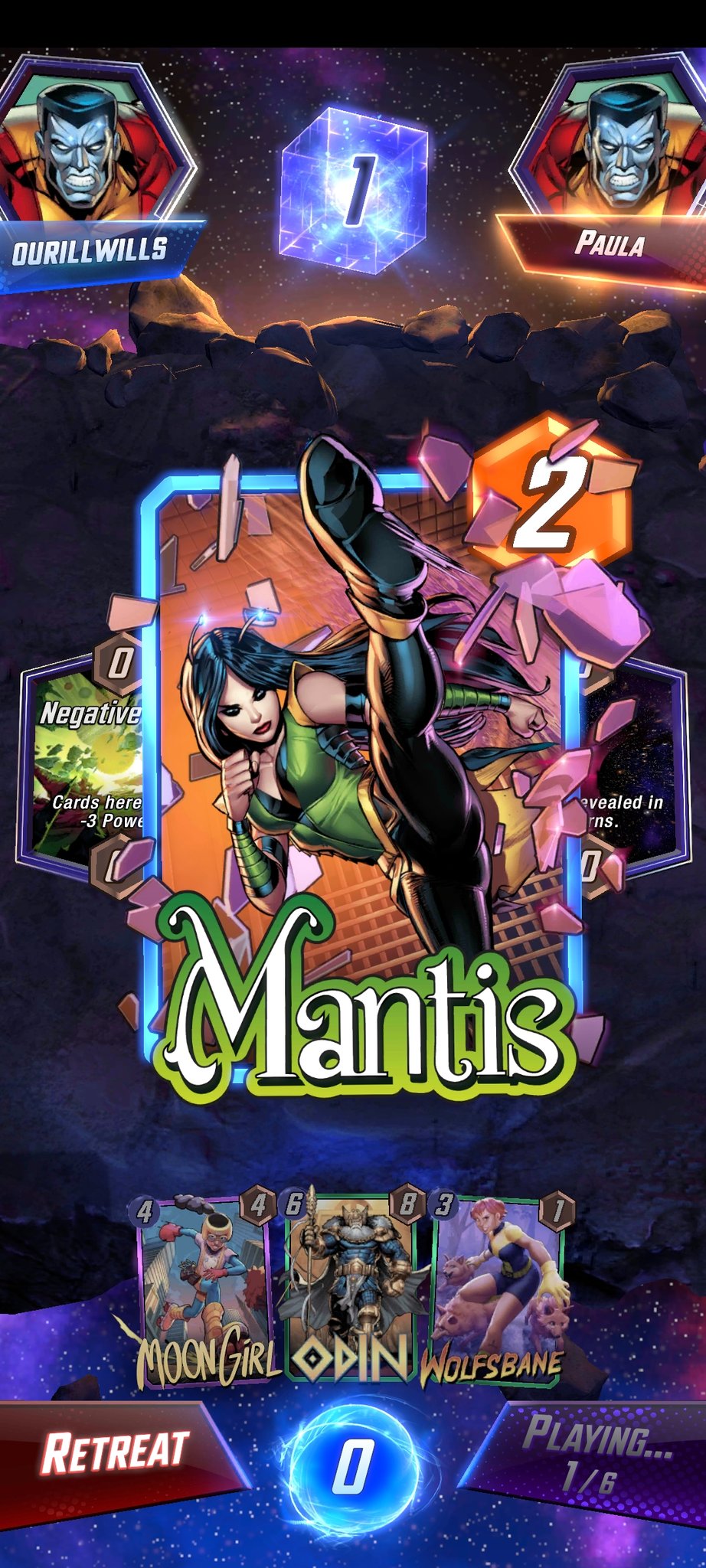
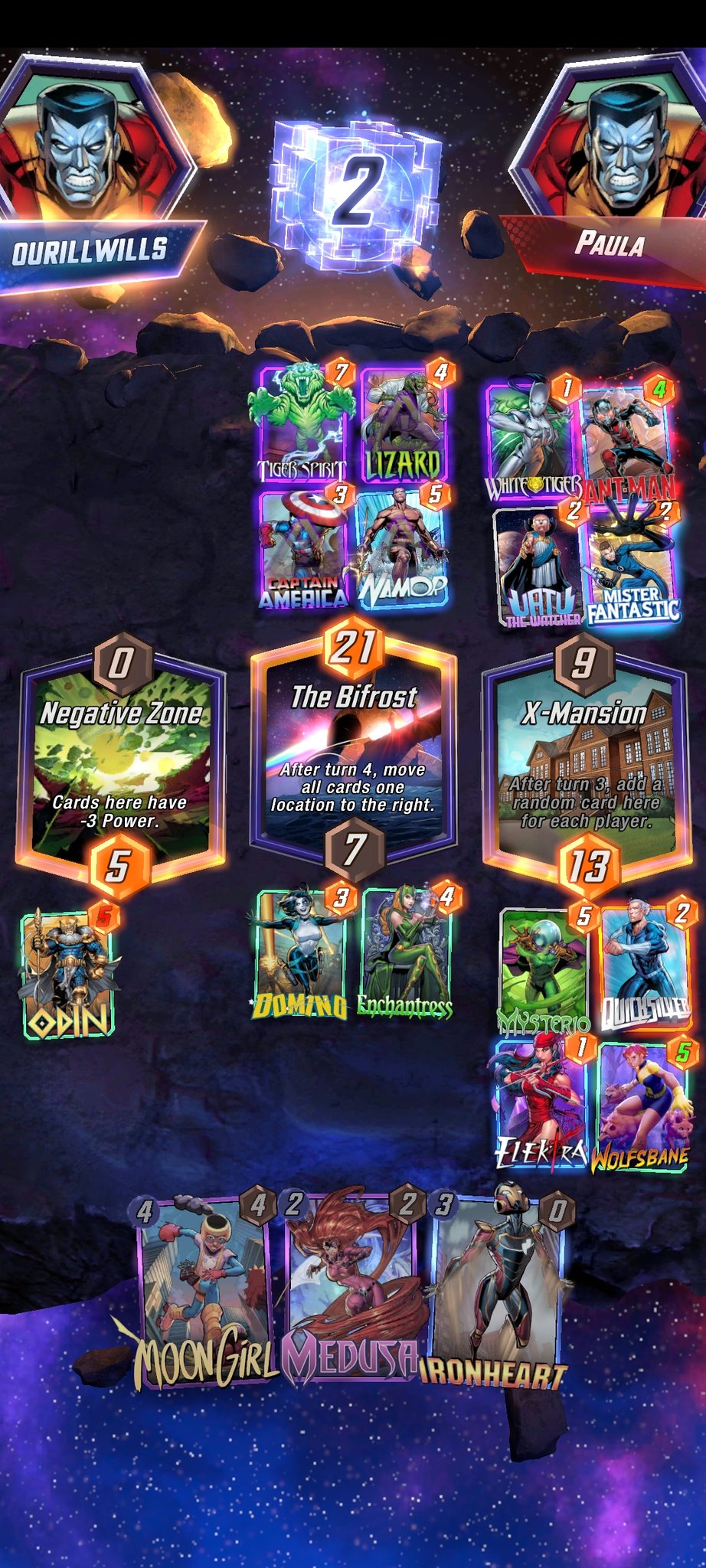
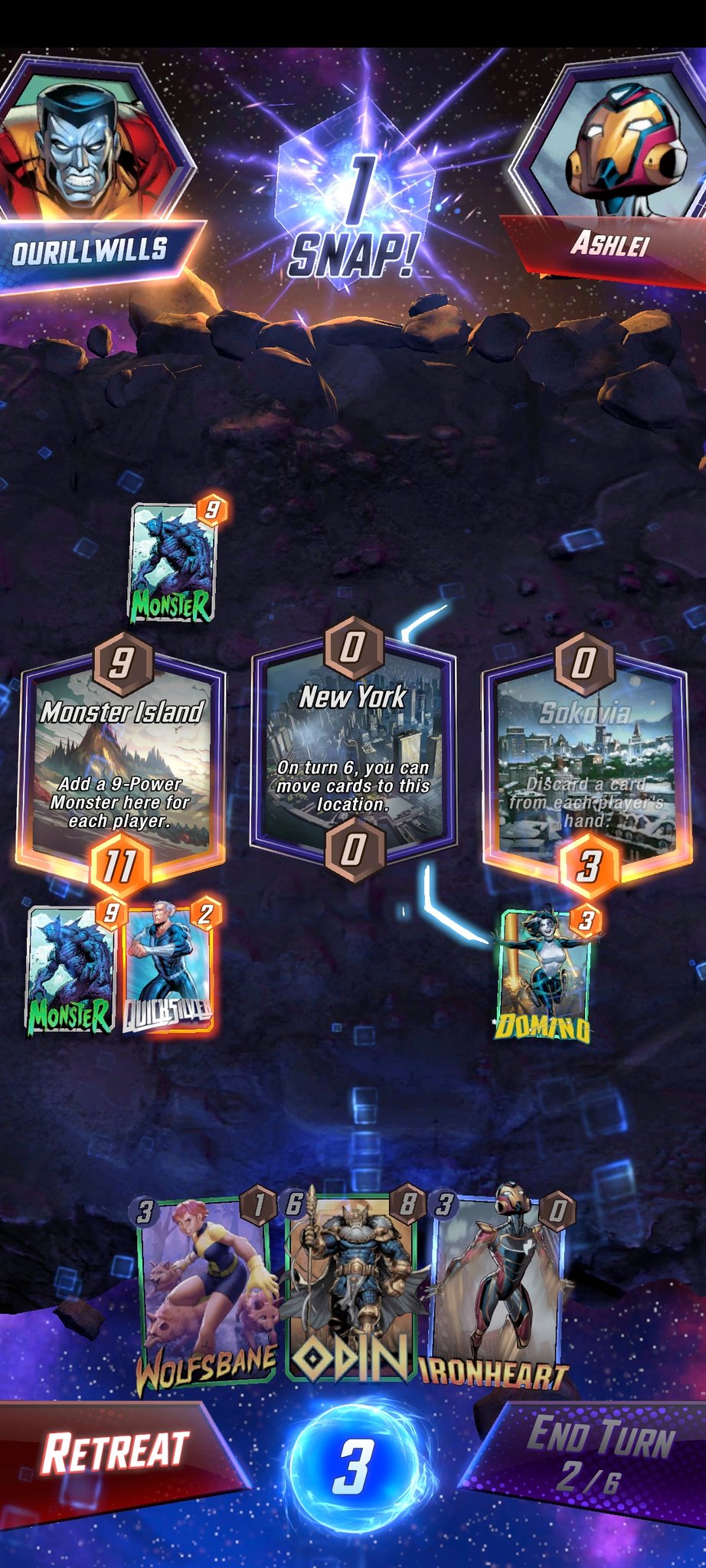
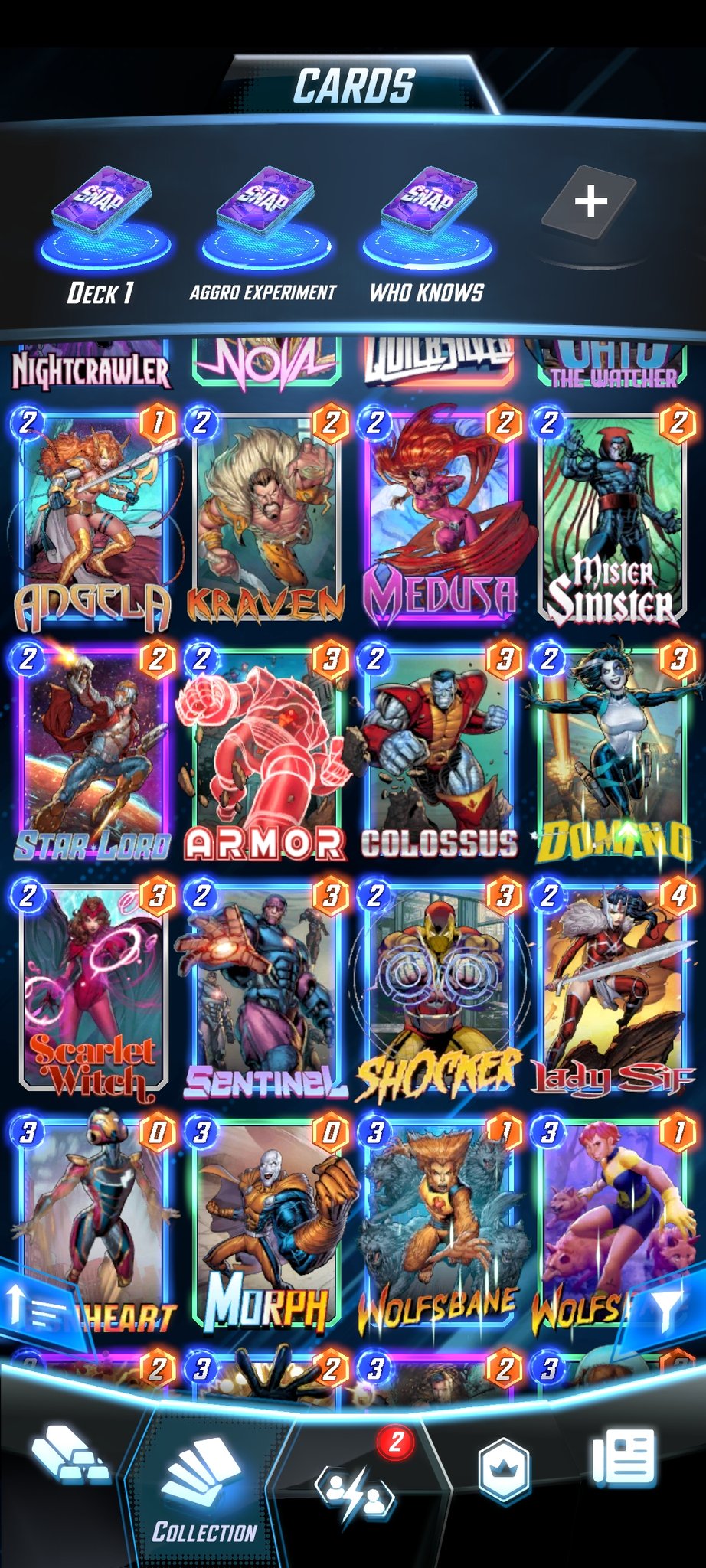
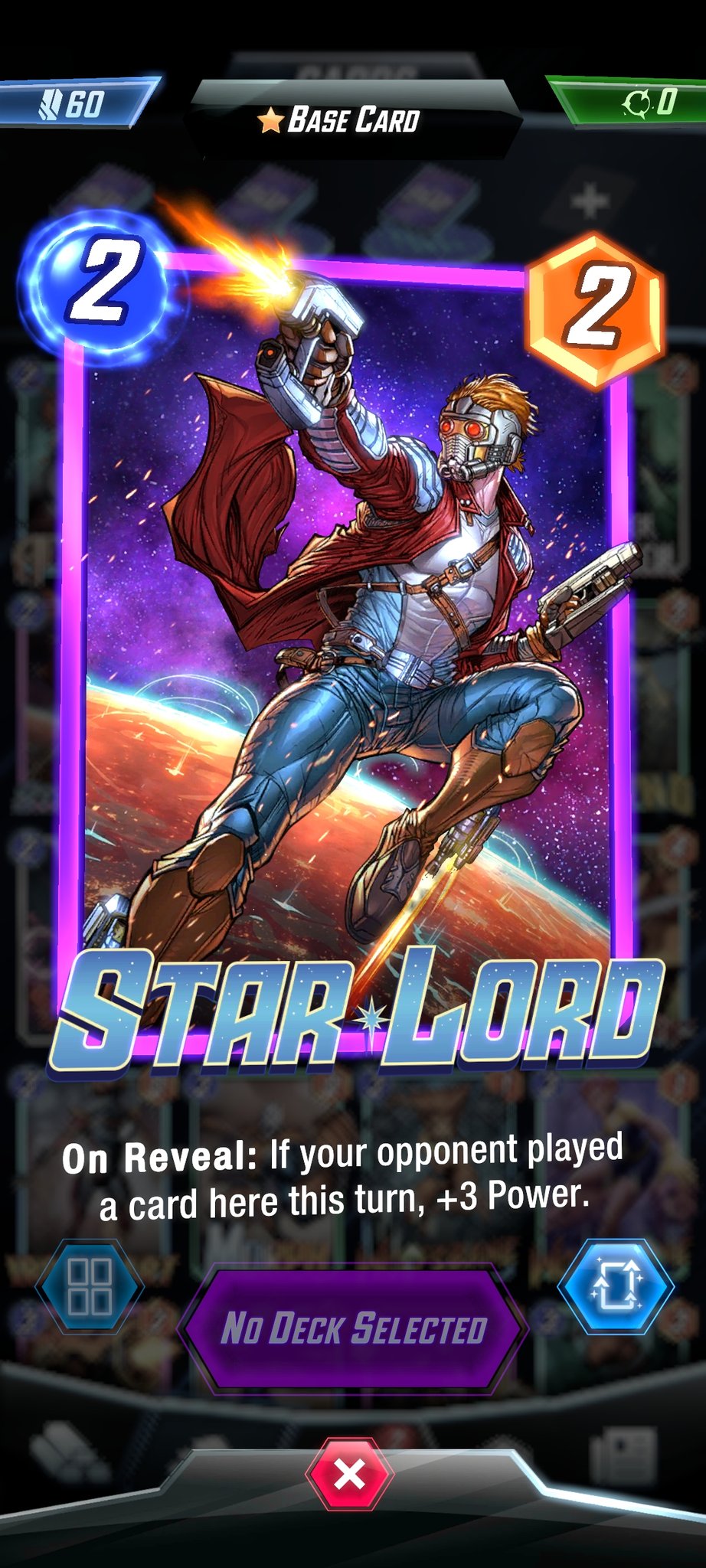
Update: Since this story was published, Brode wrote a message on the Marvel Snap Discord to explain that Nexus Events were being disabled. Here's what he had to say:
"We're still working on what our future monetization/new card plans might look like, but we know for sure they're not Nexus Events. We were able to sneak out an emergency patch to disable all future Nexus Events once the current one ends on Monday. This patch also reverts the change to credit bundle purchases that came with the Nexus Events update - you will again be able to use gold to purchase multiple credit bundles in the shop each day. These changes are just a first step that we could implement quickly. We're continuing to work on the path forward and will keep y'all updated along the way. We're trying to work fast here, so I'm hoping we can provide more updates early next week."

Luke Winkie is a freelance journalist and contributor to many publications, including PC Gamer, The New York Times, Gawker, Slate, and Mel Magazine. In between bouts of writing about Hearthstone, World of Warcraft and Twitch culture here on PC Gamer, Luke also publishes the newsletter On Posting. As a self-described "chronic poster," Luke has "spent hours deep-scrolling through surreptitious Likes tabs to uncover the root of intra-publication beef and broken down quote-tweet animosity like it’s Super Bowl tape." When he graduated from journalism school, he had no idea how bad it was going to get.

